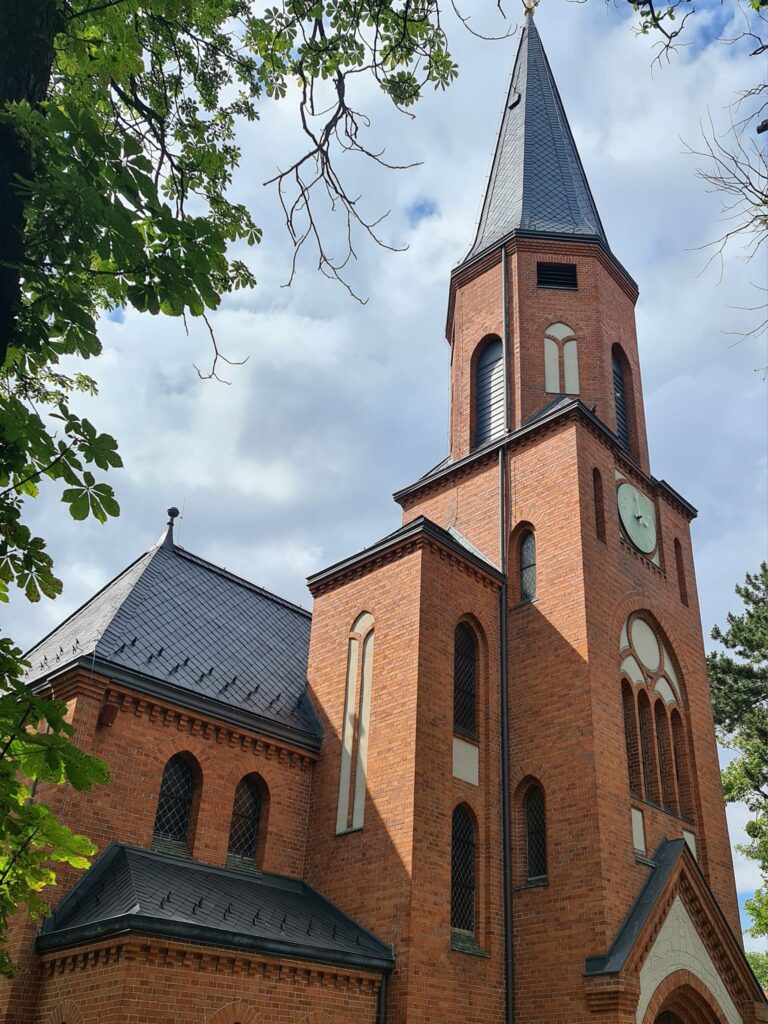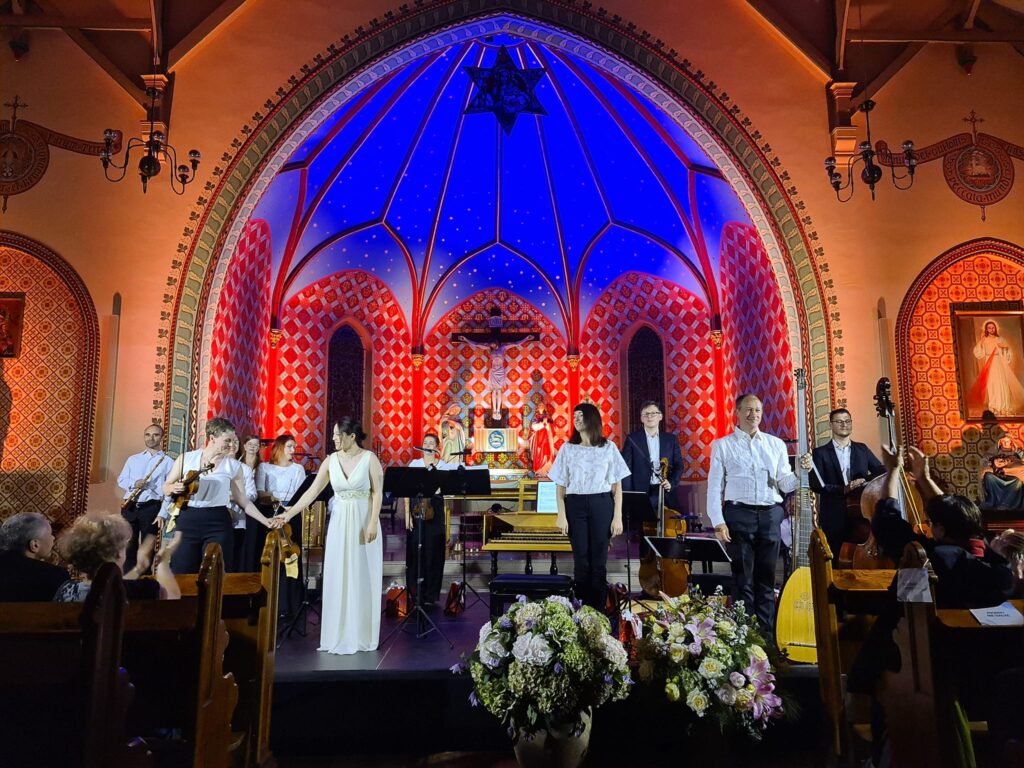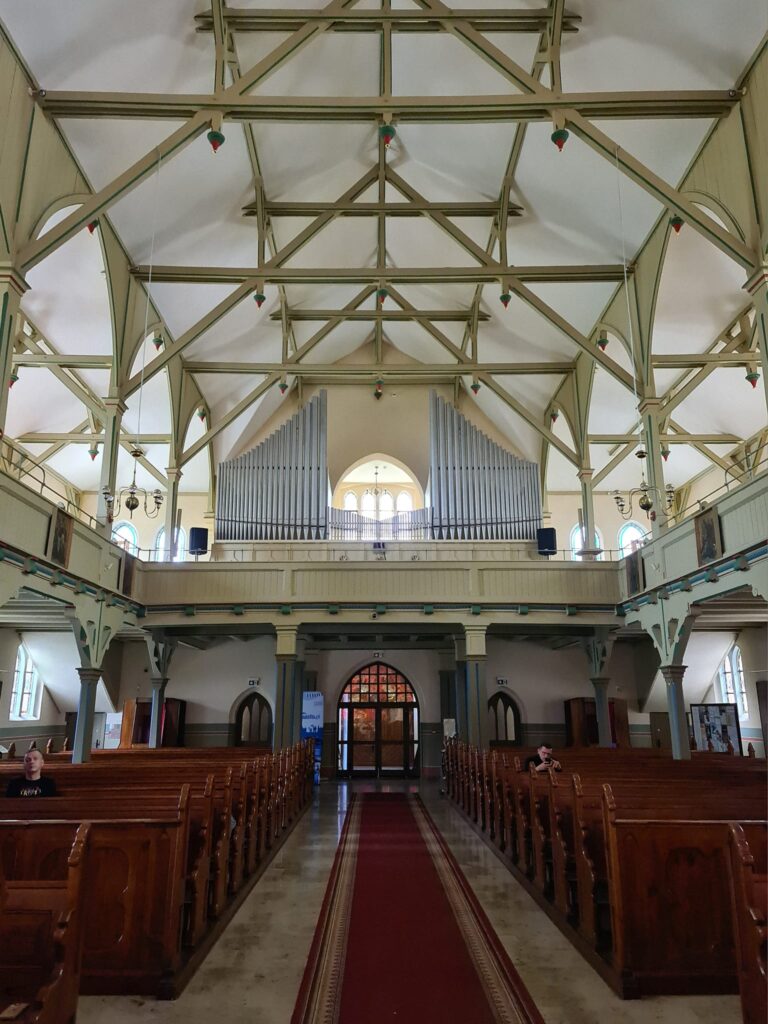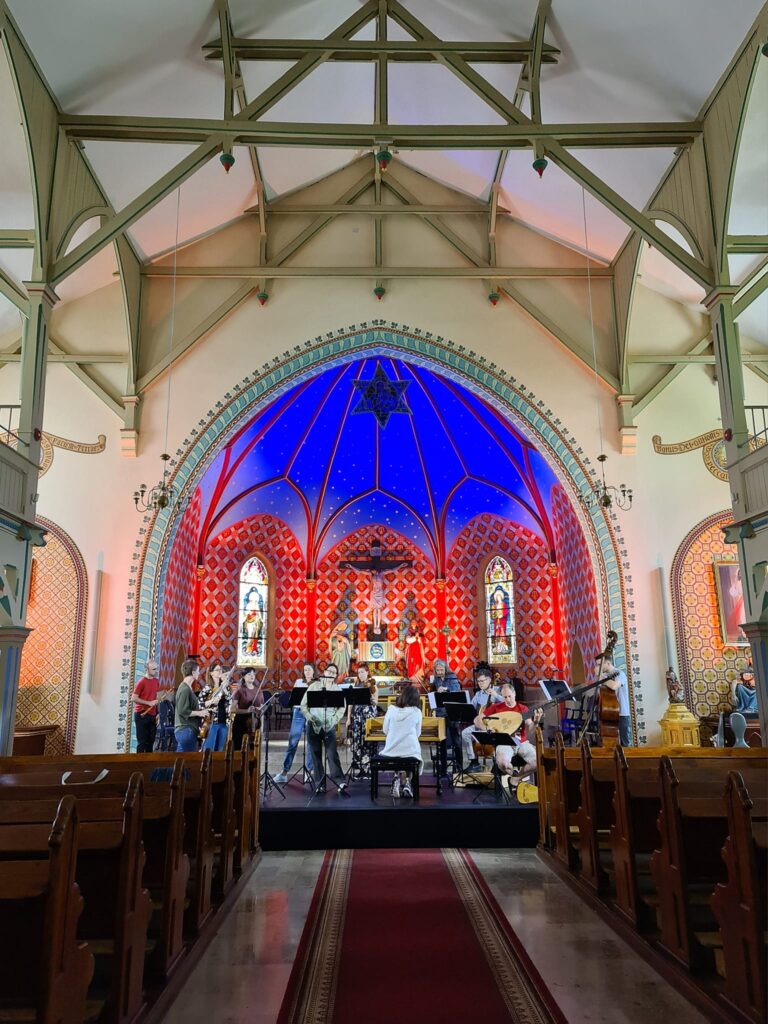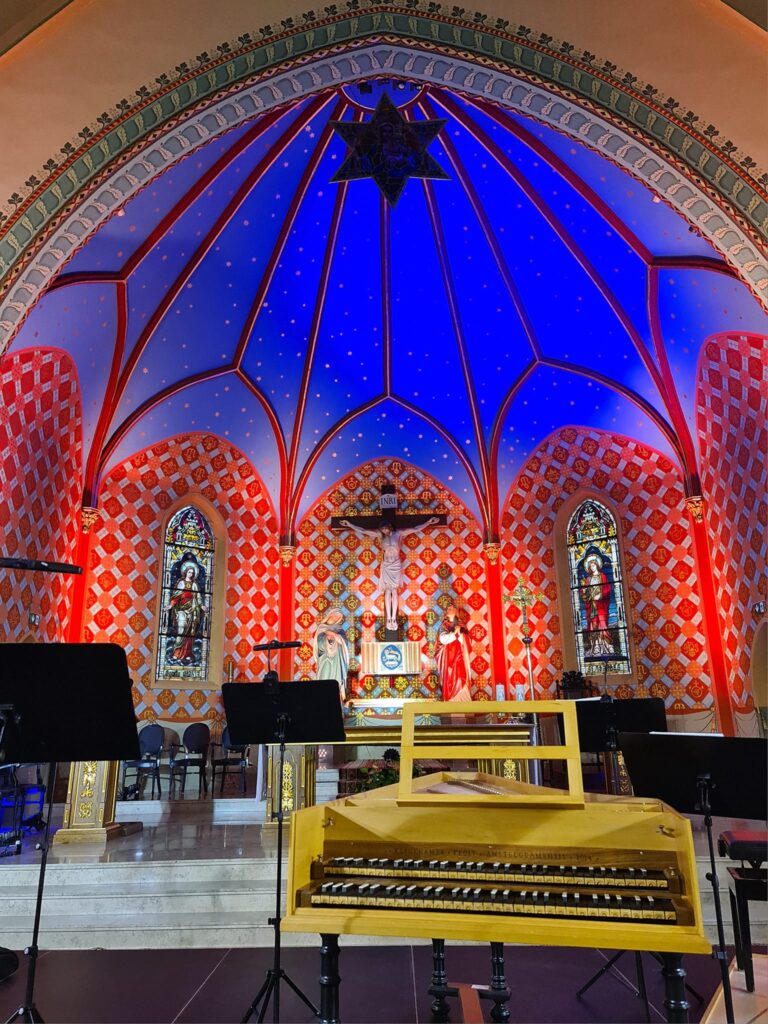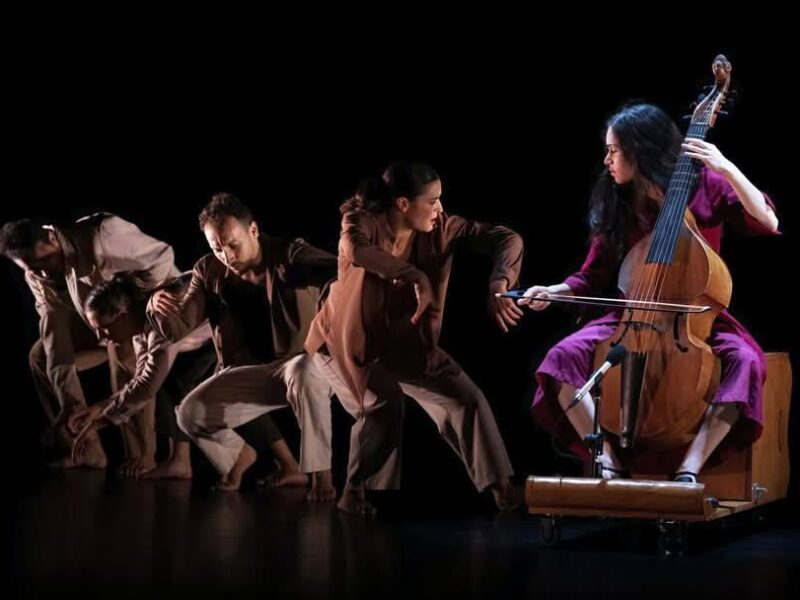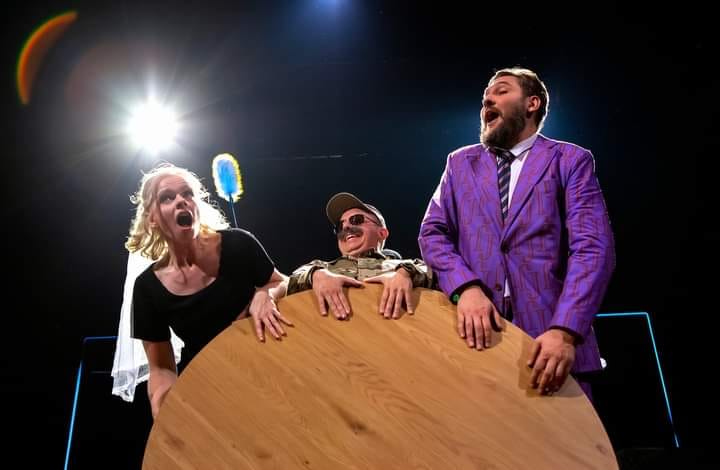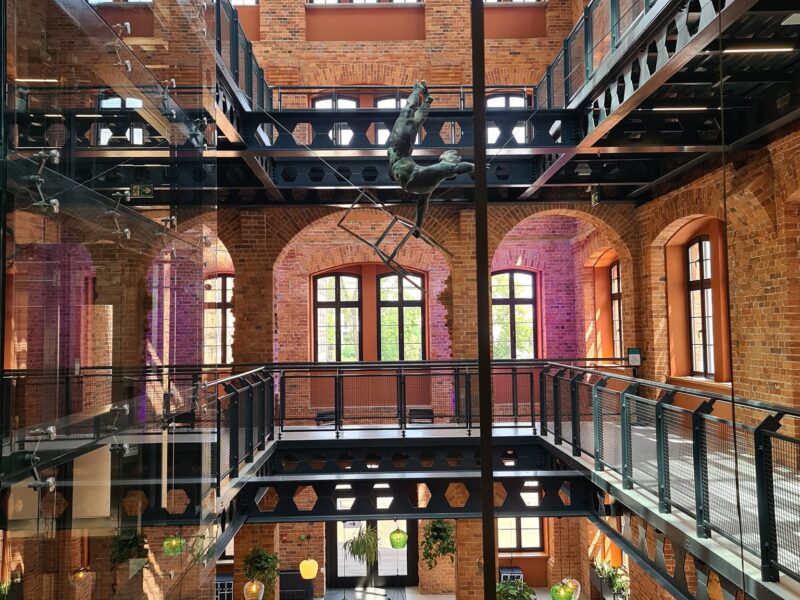[English version]
NDI Sopot Classic is a summer festival that – for 13 years now – has provided a large portion of great music during the vacation time for many years. The music is of high quality and well performed. For years, there have also been concerts for fans of early music. This year, Narea Son and the {oh!} Orchestra, under the artistic direction of Martyna Pastuszka, performed at the Our Lady, Star of the Sea Church in Sopot.
Giovanni Antonio Guido (1675-1729), although born in Genoa and studied in Naples, where he attended the Conservatorio della Pietà dei Turchini, quickly moved to Paris and started the service of Philip, the future Duke of Orléans, and later his son, Louis I. At the court of the Dukes of Orléans, he received the honorary title of maître de la musique (master of music).
In Paris, Guido participated in musical evenings organized by financiers, the Crozat brothers, Antoine and Pierre, wealthy patrons of the arts. Pierre Crozat, among other things, was a patron of the prominent painter Antoine Watteau, who created four seasons’ themed works between 1713 and 1716. Probably because of this occasion Guido composed „Scherzi armonici sopra le quattro staggioni dell’anno” (Harmonic Scherzi for Four Seasons of the Year). Scherzi Armonici are Italian concertos presented in the form of French suites. Or perhaps French suites in the form of Italian sonatas. This collection of compositions is so important in the development of Baroque music that it could have inspired Antonio Vivaldi to write The Four Seasons. Or maybe it was the other way round?
The {oh!} Orchestra is a brand so excelent that one goes to each concert with very high expectations and returns with the hope that the next one will be soon. How to play French music written in Italian? Martyna Pastuszka took this challenge. The opening „Le temps vole” (Time Passes) from the Spring cycle took us on a beautiful musical journey. The quick passages of the strings, the pastel color of the recorders, alternated with the strong, staccato sound of the orchestra, indicated that intense emotions were approaching: joyful and stormy, sharp and soft – effectively contrasted and clearly marked.
Indeed, each subsequent part was different. Without understanding the titles, I clearly heard birds singing, violent storms, the characteristic sound of a cuckoo, and leaves rustling in the wind.
At times it was very lively, as in „Danse des bergers” (Shepherds’ Dance) or „Un violant orage” (Violent Storm). In the latter, the orchestra also drew attention with its unconventional and irregular pulse.
Some parts were exceptional:
„Vole a notre secours, o Ceres adorable” (Give us help, o beautiful Ceres) – a wonderful song played on the violin by Martyna Pastuszka, whose melody seemed to flow freely through the interior of the church. And Ceres indeed could feel helpful, as in this particular aria the soloist’s E string broke. How much Baroque drama in all of this…
„Menuet des nymphes” (Minuet of the Nymphs) – dance-like, swaying, with a Baroque guitar and pizzicato of remaining bass instruments. And most importantly – with the beautiful sound of the harpsichord (Anna Firlus), which provided a good basis for the other voices.
„L’amant respectueux” (Respectful Lover) – a part divided into even smaller sections: slow, pastel violin soli by Martyna Pastuszka alternated with quick tutti passages, with an extraordinary, strong, fervent sound of the cello (Tomasz Pokrzywiński) and double bass (Łukasz Macioszek).
„Sommeil” (Sleep) – lazy, slow, singing, awaited. Everything in its time; „La chasse” (The Hunt) – spirited and dense; „La saison des frimats” (The Season of Frost) – like the „Cold Song” by Henry Purcell with beautiful phrases by Jan Čižmář on the theorbo.
There were also unusual sounds like the noise of chains dropped on the floor („Marche des guerriers” – Warriors’ March), disassembled recorders, or oboe reeds detached from the body („Le cruel aquilon” – The Cruel North Wind). And in the noble „Air de trompette” (Trumpet Air) I heard Polish sounds.
I am sure it is good to play with the {oh!} Orchestra. I saw the flashes in the eyes of the artists, their cooperation, glancing at each other, smiles, and playing with the musical fabric.
Guido’s scherzi were interspersed with arias from the serenata „Il nascimento dell’Aurora” by Tomaso Albinoni (1671-1751). He is best known for instrumental music, with over 80 concertos. However, his greatest popularity came from a piece he did not compose – the famous Adagio.
Albinoni’s „Nascimento dell’Aurora” (The Birth of Dawn) belongs to the genre of serenata, much loved in the 18th century. As a rule, serenatas are shorter than operas and set in Arcadian, idyllic scenery, partially or completely staged outdoors. Albinoni wanted to gain favor with many European courts, so he dedicated his works to numerous significant personalities. In this case, he dedicated his composition to Elisabeth Christine of Brunswick-Wolfenbüttel, daughter of Ferdinand Albert II, Duke of Brunswick-Lüneburg.
The solo parts of Daphne in Albinoni’s recitatives and arias were performed by the Korean soprano – Narea Son. She was excellent! Masterful, freely sung recitatives, beautiful cantilenas, pure high notes, natural acting, giving proper weight to the words. In all the arias, the florid and ornamented „da capo” were also delighted. Importantly, she decided to replace another singer at the last minute. The concert has been saved.
Narea Son has a large range and similar technical capabilities at every level. In the recitative „Pastori e Ninfe, il voto è giusto” before the aria „Se non ama” in addition to the evident good cooperation between the vocalist and the continuo group, it was also great to watch her eye play, hand gestures, and whole-body movements. Similarly in the aria „Questa fronda,” melodic, Handel-like in style, and in the aria „Cinta omai,” sung at the end of the main part of the concert. Class. Style. Elegance. Bravura. But in this case, not the kind of bravura that gets out of hand and leads to the unknown. It is well-thought-out and restrained bravura.
All this made the audience, who filled the Star of the Sea Church in Sopot to the last seat, receive the concert very warmly. We heard an encore – „Rejoice” from the oratorio „Messiah” by George Frideric Handel with a poignant middle section.
***
July 4, 2024
8:00 PM | Church of the Assumption of the Blessed Virgin Mary – Star of the Sea in Sopot
French Four Seasons
Performers:
Narea Son – soprano
Martyna Pastuszka – artistic director, violin
{oh!} Orkiestra
violins: Sulamita Ślubowska, Joanna Gręziak, Dominika Małecka, Marzena Biwo
viola: Dymitr Olszewski
cello: Tomasz Pokrzywiński
double bass: Łukasz Macioszek
oboes: Pedro Castro, Petra Ambrosi
harpsichord: Anna Firlus
theorbo: Jan Čižmář
